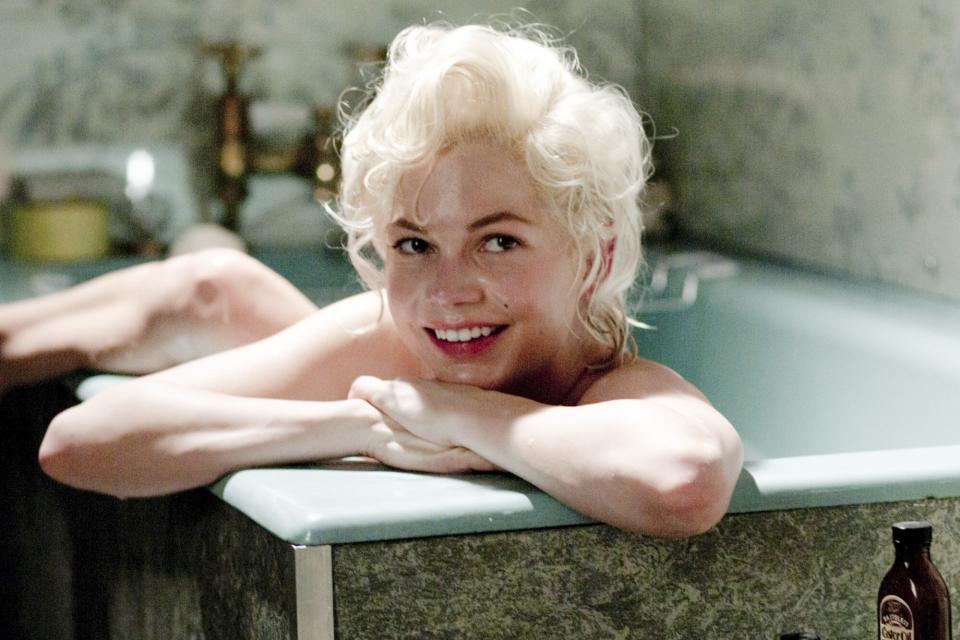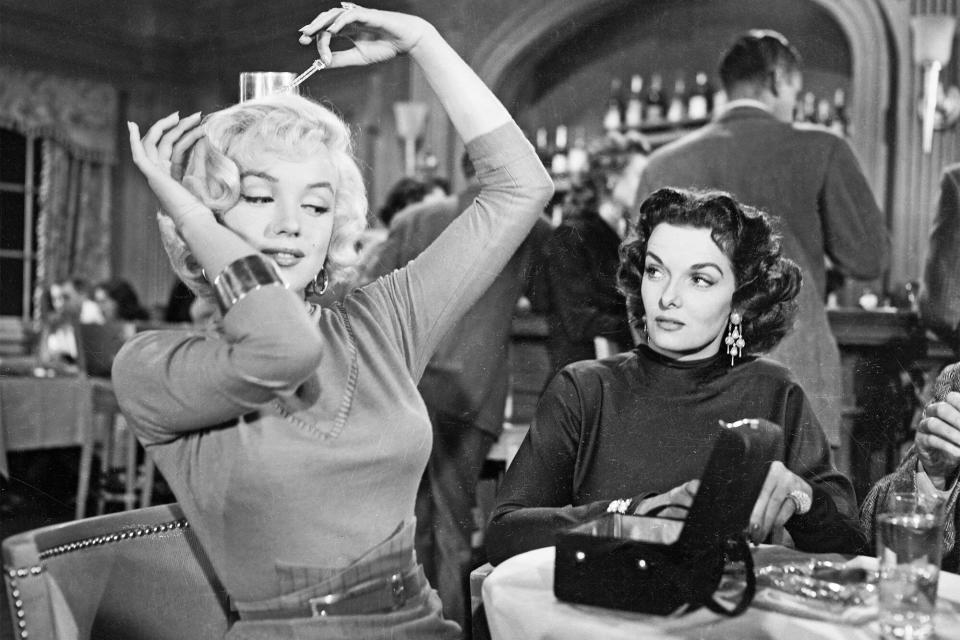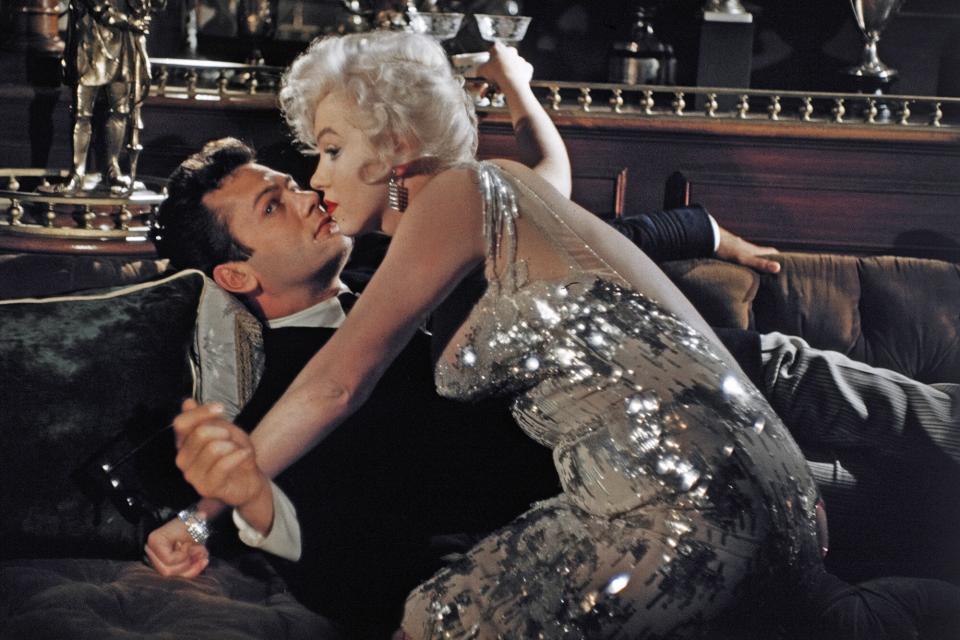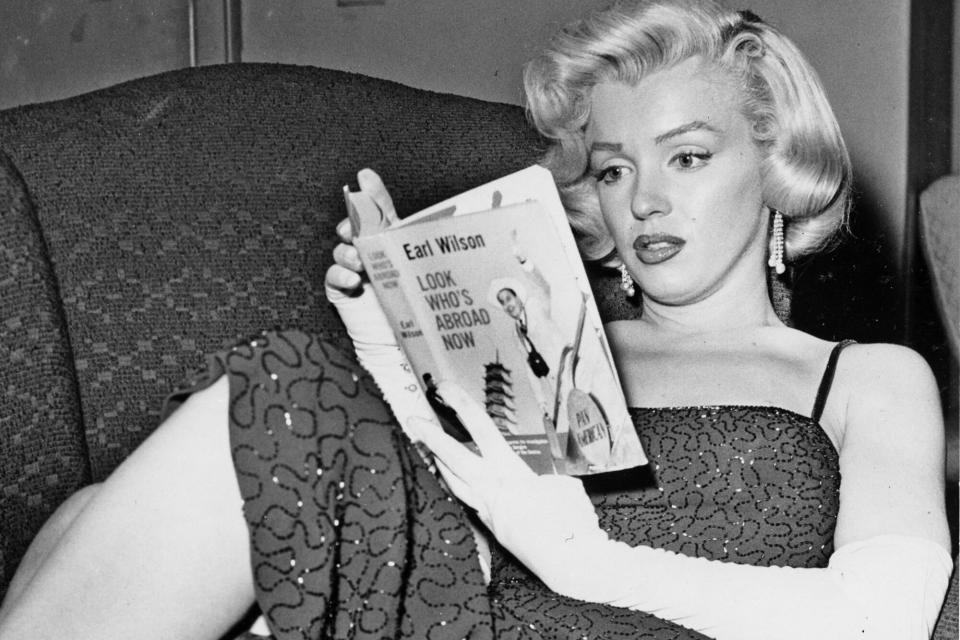Why does playing Marilyn Monroe garner more Oscar love than she ever got?

- Oops!Something went wrong.Please try again later.
- Oops!Something went wrong.Please try again later.
- Oops!Something went wrong.Please try again later.
Marilyn Monroe desperately wanted to be taken seriously as an actress. Instead, actresses get taken seriously for playing Marilyn Monroe.
On Tuesday morning, Ana de Armas became the latest actress to garner awards recognition for her portrayal of Monroe. Armas scored an Oscar nomination for Best Actress for her work as Norma Jean/Marilyn in Netflix's Blonde. Even before it premiered in September, Blonde was a polarizing title, drawing ire from Monroe biographers and fans for its explicit depictions of the abuse and exploitation she endured in her own lifetime.

Everett Collection; Netflix The real Marilyn Monroe and Ana de Armas in 'Blonde.'
With that in mind, Armas' inclusion in the Oscar race was anything but a sure thing (the film also got plenty of attention from the Razzies as one of the worst movies of the year). But no one should've bet against Norma Jean.
While Monroe was never even nominated for an Oscar, Armas is now the second actress to score an Oscar nod for playing Marilyn; Michelle Williams was nominated for 2011's My Week With Marilyn, a film detailing the making of The Prince and the Showgirl. While the Oscar is certainly the brass ring, portrayals of Monroe have also snagged nominations from the Emmys, SAGs, and more.

LAURENCE CENDROWICZ/TWC Michelle Williams in 'My Week With Marilyn.'
In her lifetime, Monroe did earn nominations for the BAFTA for Best Foreign Actress for The Prince and the Showgirl and The Seven Year Itch, as well as Golden Globe nods for Bus Stop and Some Like It Hot. But by and large, Monroe was regarded as an image more than an actress. Her frustration with the litany of dumb blonde roles assigned to her by the studio prompted her to escape to New York, study at the Actors' Studio, and seek to reinvent herself as a serious actress with her own production company.
But neither Hollywood nor the world, for that matter, was ready to see Monroe that way. Some might argue that all this awards love for actresses who attempt to embody her is a course correction — an acknowledgment of her genius and frailty all at once. But it's hard not to see it as a continuation of the exploitation she endured throughout her career.

Bettmann Marilyn Monroe with Jane Russell in 'Gentleman Prefer Blondes.'
Long before Monroe went "method," her genius on screen was evident — watch her unravel as a disturbed babysitter in Don't Bother to Knock, breathe visceral new life into the femme fatale in Niagara, or brilliantly satirize the dumb blonde trope in Gentlemen Prefer Blondes and How to Marry a Millionaire. Her naturalism, which would become her obsession after studying at the Actors' Studio, is on full display, but so too is her intelligence — this is a woman who knew instinctively how to build a character from the inside out, how to build empathy in drama, or bring the audience in on the joke in comedy. But the Academy and Hollywood at large couldn't see past the construction of her platinum coif, her artfully placed beauty mark, and her breathy voice.
In many ways, they still can't. Playing Monroe is distilled into how much an actress looks like her, how perfectly they master her distinctive voice (see: all the hubbub surrounding de Armas's Cuban accent). Our evaluation of how well an actor embodies Monroe is, first and foremost, surface level. Never mind that Marilyn Monroe was as much a construction and a mask for Norma Jean as it is for any actress today.

Richard C. Miller/Donaldson Collection/Getty Marilyn Monroe and Tony Curtis in 'Some Like it Hot.'
But beyond even that physical assessment, there's a more troubling parallel. Projects about Monroe have handled her personal life to varying degrees of success, often leaning into her flibbertigibbet persona, her struggles with addiction, and the paradox of her oozing sexuality and her little girl brokenness. Blonde is perhaps the most troubling yet, with its lurid sexual violence and complete disregard for facts.
Monroe is a vehicle for actresses to expose themselves, to bare their souls as they bring her trauma to life. Actresses are feted as brave for daring to take on the laundry list of Monroe's purported bugaboos, from addiction to depression to an Electra complex. Even more nuanced takes, like Williams in My Week With Marilyn, can't resist the allure of reducing her to a bird with a broken wing. It's true that Monroe was troubled, of course. But even in her own time, the sense that no one could see beyond that only compounded the issue. What would truly be brave would be finding a way to transcend those stereotypes.

Everett Marilyn Monroe reading Earl Wilson's travel book 'Look Who's Abroad Now' in 1953.
Hollywood prefers to depict Monroe as a cautionary tale, rather than showcasing her sensitivity as a poet, her intellectualism as a voracious reader, her ferocity in beating 20th Century Fox in court, and her creativity and ambition in founding her own production company. It's easier and probably more dramatically compelling to sell the narrative of Monroe's frailty. But she is so much more than what these portrayals grant her, a woman worthy of adoration, yes, but also of respect. Alas, such respect seems reserved solely for her alter egos.
Playing Marilyn Monroe was the greatest performance of Norma Jean Baker's career. But as long as we celebrate those who portray her more than the woman herself, we'll fail to understand what truly made her deserving of our love.
Check out more from EW's The Awardist, featuring exclusive interviews, analysis, and our podcast diving into all the highlights from the year's best films.
Related content:

